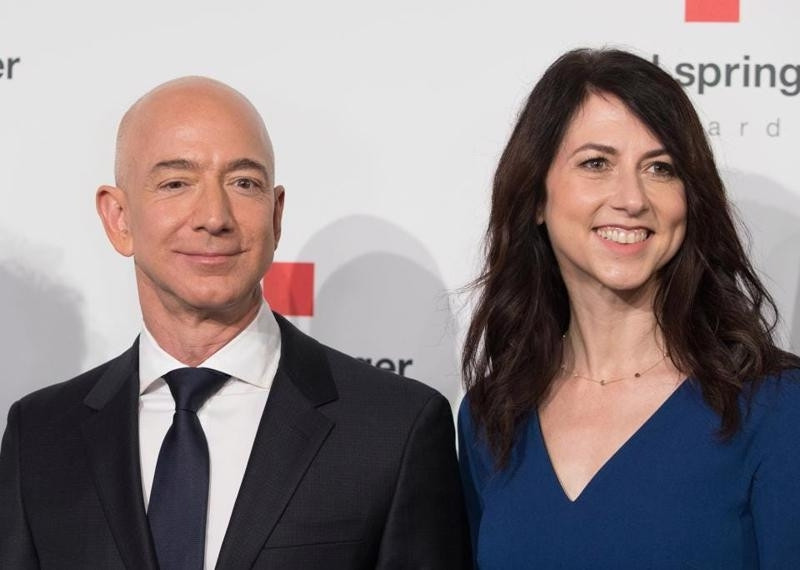If Bezos had maintained his entire stake in Amazon and not liquidated some of it, his wealth would have been significantly higher.
The financial trajectory of the founder of tech giant Amazon, billionaire Jeff Bezos, is a topic of great interest, especially in light of his divorce from MacKenzie Scott in 2019.
At the time of their separation, Bezos was the wealthiest individual globally, with a net worth of $150 billion, largely thanks to his 16% ownership in Amazon, according to Celebrity Net Worth.

Billionaire Jeff Bezos with his ex-wife MacKenzie Scott
As of February 2024, according to Forbes, Jeff Bezos’s assets are estimated at about 191 billion USD, putting him at the top of the list of the world’s richest people, slightly less than Tesla CEO Elon Musk, who is talented. Net assets are 199 billion USD. Both men rank behind Bernard Arnault and his family, who run the LVMH Moet Hennessy Louis Vuitton empire, with a net worth of $217.6 billion.

“What would happen” to Bezos’ financial situation if he had not divorced? Specifically, before the divorce, Bezos’ 16% stake in Amazon was valued at $150 billion. After the divorce and the decisions Following financial decisions, including a significant sale of Amazon stock to fund his Blue Origin space project, Bezos’ stake in the company was reduced to about 10%.
These transactions, along with the divorce settlement transferring 4% of Amazon shares to Scott, have significantly altered Bezos’ potential net worth.
If Bezos had maintained his entire stake in Amazon and not liquidated some of it, his wealth would have been significantly higher.
With Amazon’s market capitalization currently around $1.8 trillion, a 16% stake would equate to $288 billion. This hypothetical number surpasses a series of other billionaires, including Musk, Arnault, Meta Platforms CEO Mark Zuckerberg and Microsoft co-founder Bill Gates. This would position Bezos as potentially the richest person in history.
Another classic “what if” story can be mentioned by Microsoft co-founder Bill Gates. He initially held 49% of Microsoft, which was later reduced slightly to 45% after its initial public offering in 1986. Gates’ stake in the “tech giant”, based on capitalization the current $2.8 trillion market, would be valued at $1.23 trillion today. Thereby, he can become the first trillion-dollar billionaire in American history.
Although hypothetical, this analysis highlights the dynamic nature of the billionaire rankings, where legal developments, personal lives and business situations can change them significantly. situation.





